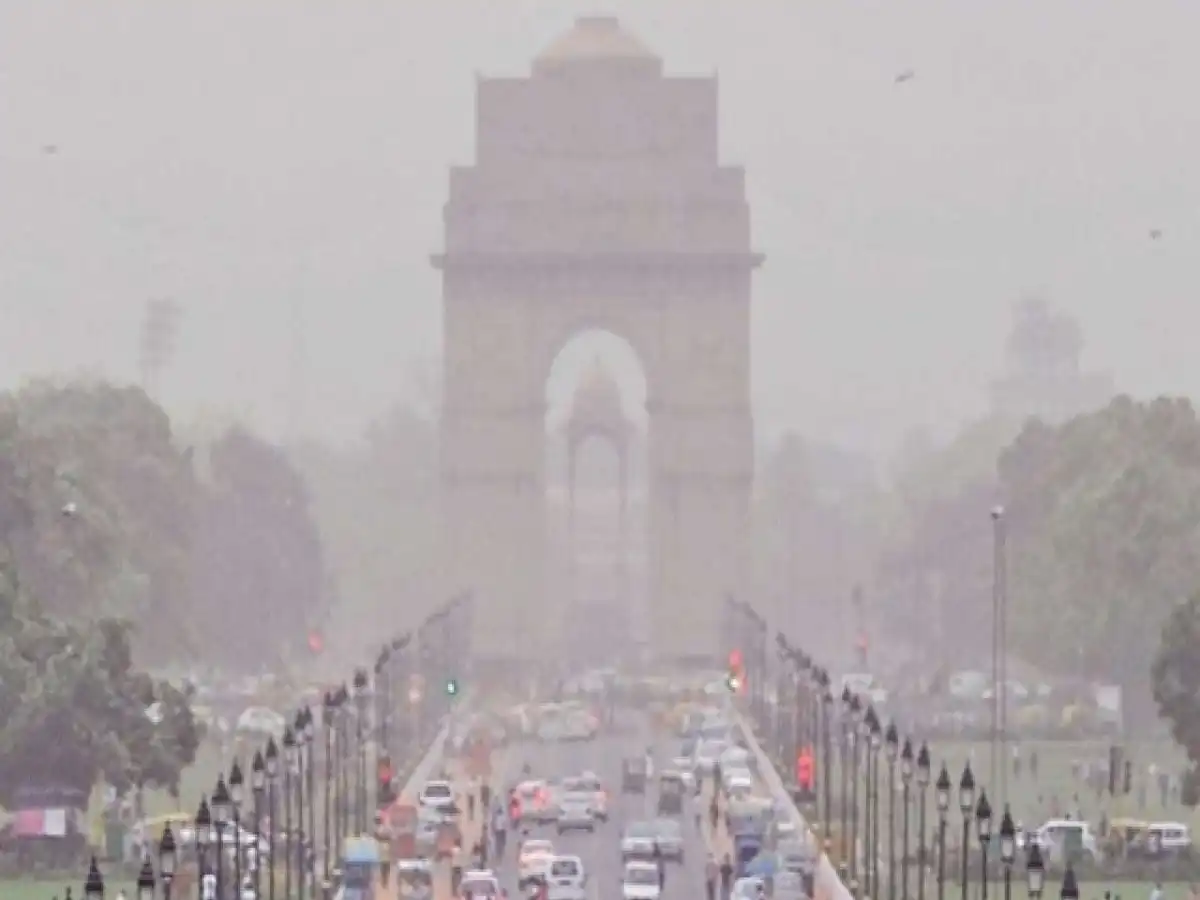Delhi’s Air Quality Remains “Very Poor” in November, Alarming Concerns Persist
<p>In the heart of India, Delhi grapples with yet another month of “very poor” air quality, marking the fourth consecutive day of concerning conditions, and the outlook for improvement remains uncertain as November unfolds. A Mixed Bag of Data On Tuesday, two different datasets regarding Delhi’s air quality were released, offering a mixed bag of […]</p>

Delhi’s Air Quality Remains “Very Poor” in November, Alarming Concerns Persist
In the heart of India, Delhi grapples with yet another month of “very poor” air quality, marking the fourth consecutive day of concerning conditions, and the outlook for improvement remains uncertain as November unfolds.
A Mixed Bag of Data
On Tuesday, two different datasets regarding Delhi’s air quality were released, offering a mixed bag of information. While one data source appears to provide a glimmer of hope in the battle against pollution, the other paints a bleak picture.
The Central Pollution Control Board (CPCB) reveals data that classifies Delhi’s air quality in October 2023 as the “worst” since 2020. This year, the capital city reported an average Air Quality Index (AQI) of 210, a stark comparison to the 210 AQI in October last year and the 173 AQI recorded in October 2021.
To put this into perspective, an AQI between zero and 50 is considered ‘good,’ 51 to 100 falls into the ‘satisfactory’ range, 101 to 200 is labeled ‘moderate,’ 201 to 300 is ‘poor,’ 301 to 400 is ‘very poor,’ and 401 to 500 represents ‘severe’ air quality.
In a contrasting light, the Commission for Air Quality Management in NCR and Adjoining Areas (CAQM) presents data indicating that the daily average air quality in Delhi for the ten-month period from January to October 2023 registers as the best index over the last six years (excluding the COVID-affected year of 2020). This suggests a consistent trend of gradual improvement in the air quality of Delhi-NCR.
The Annual Plight
As is the case every year, the people of Delhi are forced to breathe in toxic air throughout the month. The average air quality in the National Capital Region (NCR) finds itself entrenched in the “very poor” category, with Faridabad at 320 AQI, Noida at 329 AQI, Delhi at 359 AQI, and Greater Noida at 375 AQI, as per CPCB data released on Tuesday.
Data Discrepancies
Delving deeper into the data, CPCB reports a distressing fact – not a single day in the capital has witnessed ‘good’ air quality. In stark contrast, 2022 and 2021 experienced two and one ‘good’ air quality days, respectively. However, the CAQM offers a glimmer of hope, stating that Delhi achieved an AQI of 172 from January 1 to October 31, 2023, ranking as the second-best over the past six years for the same duration.
The city witnessed better air quality in this period only during the COVID-19 pandemic-affected year of 2020. In the years 2022, 2021, 2019, and 2018, the average AQI during this duration ranged from 179 to 201, as reported by the CPCB.
Weather Impact
The relatively low average wind speed during October 2023 and frequent episodes of still atmospheric conditions are factors that have influenced the air quality in the national capital.
According to the Centre’s Commission for Air Quality Management (CAQM), October 2023 experienced a lower average wind speed, coupled with prolonged periods of ‘still’ conditions, yet the daily average AQI of 219 only slightly surpassed the 210 AQI recorded in October 2022.
Delhi saw minimal rainfall in October 2023, with just one rainy day bringing 5.4 mm of precipitation. In contrast, October 2022 witnessed six rainy days with 129 mm of rainfall, and October 2021 saw seven rainy days with 123 mm of precipitation.
A Glimpse of Improvement
Despite these challenges, Delhi has observed an encouraging trend, experiencing 206 days with “Good” to “Moderate” air quality (Daily Average AQI < 200) during January to October 2023, surpassing previous years (excluding the COVID-affected year of 2020).
The daily average AQI for Delhi during this period in the current year stands at 172, compared to 187 in 2022, 179 in 2021, 156 in 2020, 193 in 2019, and 201 in 2018, showcasing a positive trajectory in the city’s air quality.
A Growing Concern
Meanwhile, in Punjab, the number of farm fires has reached an alarming high, with 1,068 recorded on a single Sunday, marking the highest of the season. Experts express concerns that the situation may worsen due to a delayed start to the harvesting season this year.
Adding to the worry, despite a ban on firecrackers in the national capital, air quality takes a hit on Diwali and the subsequent day each year.
The Delhi Pollution Control Committee (DPCC) has responded by imposing a complete ban on firecrackers in the Capital until January 1, 2024, in an effort to curb the ongoing pollution crisis.








